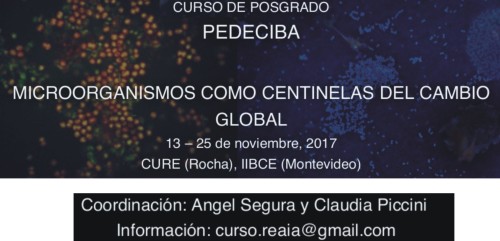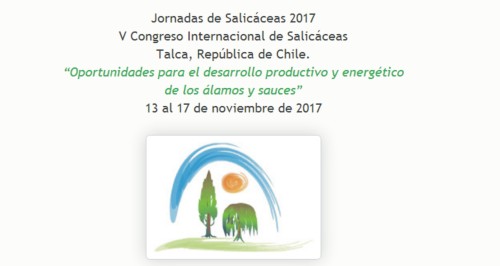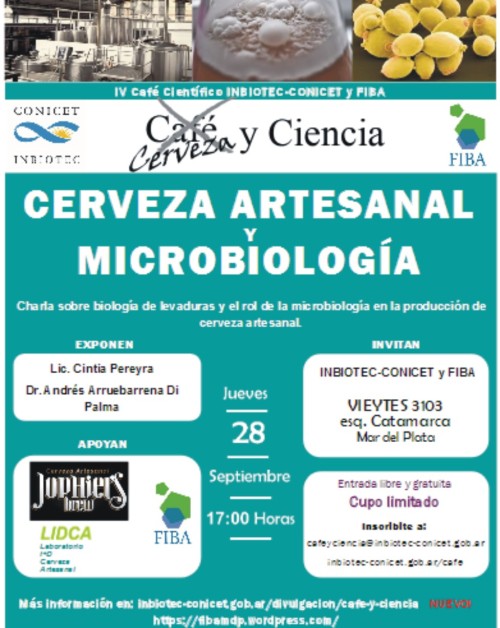Blogroll
- Agencia Nacional de Promoción Científica y Tecnológica
- Centro Científico-Tecnológico CONICET-Mar del Plata
- CIC Comisión de Investigaciones Científicas de la Provincia de Buenos Aires
- CONICET Consejo Nacional de Investigaciones Científicas y Técnicas
- Distrends
- FIBA Fundación para Investigaciones Biológicas Aplicadas
- Fundación Instituto Leloir
- Ministerio de Ciencia, Tecnología e Innovación Productiva
- WordPress.com
- WordPress.org
Archives
- May 2024
- April 2024
- March 2024
- February 2024
- January 2024
- December 2023
- November 2023
- October 2023
- September 2023
- August 2023
- July 2023
- June 2023
- May 2023
- April 2023
- March 2023
- February 2023
- January 2023
- December 2022
- November 2022
- October 2022
- September 2022
- August 2022
- July 2022
- June 2022
- May 2022
- April 2022
- March 2022
- February 2022
- January 2022
- December 2021
- November 2021
- October 2021
- September 2021
- August 2021
- July 2021
- June 2021
- May 2021
- April 2021
- March 2021
- February 2021
- January 2021
- December 2020
- November 2020
- October 2020
- September 2020
- August 2020
- July 2020
- June 2020
- May 2020
- April 2020
- March 2020
- February 2020
- January 2020
- December 2019
- November 2019
- October 2019
- September 2019
- August 2019
- July 2019
- June 2019
- May 2019
- April 2019
- March 2019
- February 2019
- January 2019
- December 2018
- November 2018
- October 2018
- September 2018
- August 2018
- July 2018
- June 2018
- May 2018
- April 2018
- March 2018
- February 2018
- January 2018
- December 2017
- November 2017
- October 2017
- September 2017
- August 2017
- July 2017
- June 2017
- May 2017
- April 2017
- March 2017
- February 2017
- January 2017
- December 2016
- November 2016
- October 2016
- September 2016
- August 2016
- July 2016
- June 2016
- May 2016
- April 2016
- March 2016
- February 2016
- January 2016
- December 2015
- November 2015
- October 2015
- September 2015
- August 2015
- July 2015
- June 2015
- May 2015
- April 2015
- March 2015
- February 2015
- January 2015
- December 2014
- November 2014
- October 2014
- September 2014
- August 2014
- July 2014
- June 2014
- May 2014
- April 2014
- March 2014
- February 2014
- January 2014
- December 2013
- November 2013
- October 2013
- September 2013
- August 2013
- July 2013
- June 2013
- May 2013
- April 2013
- March 2013
- February 2013
- January 2013
- December 2012
- November 2012
- October 2012
- August 2012
- July 2012
- June 2012
- May 2012
- April 2012
- March 2012
- February 2012
- January 2012
- December 2011
- November 2011
- March 2011
- February 2011
- January 2011
- June 2010
- May 2010
- April 2010
- March 2010
- January 2010
Blogroll
- Agencia Nacional de Promoción Científica y Tecnológica
- Centro Científico-Tecnológico CONICET-Mar del Plata
- CIC Comisión de Investigaciones Científicas de la Provincia de Buenos Aires
- CONICET Consejo Nacional de Investigaciones Científicas y Técnicas
- Distrends
- FIBA Fundación para Investigaciones Biológicas Aplicadas
- Fundación Instituto Leloir
- Ministerio de Ciencia, Tecnología e Innovación Productiva
- WordPress.com
- WordPress.org
Monthly Archives: September 2017
Recommendations for the Conduct, Reporting, Editing, and Publication in Scientific Journals
High impact Scientific Journals usually follow the ICMJE recommendations
“ICMJE developed these recommendations to review best practice and ethical standards in the conduct and reporting of research and other material published in medical journals, and to help authors, editors, and others involved in peer review and biomedical publishing create and distribute accurate, clear, reproducible, unbiased medical journal articles. The recommendations may also provide useful insights into the medical editing and publishing process for the media, patients and their families, and general readers.” Read more here
Posted in Otros temas
ECO-BIO 2018, organized by Elsevier

ECO-BIO 2018 will bring together representatives from both academia and industry to highlight progress and recent developments and the necessary steps to make the biobased economy a reality.
Taking place over two and a half days, ECO-BIO 2018 will comprise plenary talks and forum discussions, parallel sessions, posters and an exhibition together with optional company visits.
Abstracts are invited for oral and poster contributions by 23 October 2017.
Sumit Abstracts here
Topics:
Track 1: Scientific Discovery
- new feedstocks (algae, specialty crops, etc.)
- industrial microbiology
- synthetic biology
- nanobioscience
- metagenomics and mining, computational engineering
- bioactive compounds from nature
Track 2: (Industrial) Technological Development
- pretreatment
- renewable products (high performance materials, specialty chemicals, building blocks, food, feed & nutritional ingredients, health, personal & home care, etc)
- bioenergy
- consolidated bioprocessing/integration and intensification of bioprocesses
- use of residual streams (MSW, CO/CO2, ….)
Track 3: Impact assessment of biobased solutions
- ecological aspects (soil, water, human, climate)
- soil and crop management, nutrient cycles
- social, environmental and economic impacts
- biomass supply
- policy and public perception
Track 4: Innovation and valorisation
- biorefinery concepts
- new value chains/clusters
- start-ups/SMEs
- green tech capital/investors
Posted in Otros temas
IV Café Científico: Cerveza y ciencia
El jueves 28 de septiembre se llevó a cabo el CaféCientífico: Cerveza y Ciencia en las instalaciones de FIBA-INBIOTEC, auspiciado por FIBA.
Posted in Otros temas
Jornadas de Biotecnología Algal

Mar del Plata, 16 y 17 de noviembre de 2017
Inscripción libre y gratuita. Cupos limitados.
Lugar: INBIOTEC – CONICET y FIBA. Vieytes 3103, Mar del Plata.
Preinscripción e informes: enviar título y resumen de hasta
200 palabras para posibles comunicaciones orales a
leocuratti@gmail.com hasta el 30 de octubre. Se podrán exhibir
posters previamente presentados en otras reuniones reciente.

Posted in Otros temas
Cyanotoxins: Decision Support Tool
Decision Support Tool for the development of a setting-specific strategy from catchment to consumer against the occurrence of cyanotoxins in drinking-water
This DST is based on results from several projects on toxic cyanobacteria funded by the Ministry for Education and Science (Germany) and the European Union (e.g. „PEPCY“, „NOSTOTOX“, „CYANOCOST“) and has been developed during these projects by Verena Niesel, Jutta Fastner, Wolfgang Wenzel and Ingrid Chorus from the Federal Environmental Agency, Berlin. The support of Geoffrey Codd especially with the English version is gratefully acknowledged.
System description
A thorough understanding of the system – from the catchment to the point of exposure – is the basis for analysing hazards and assessing risks when developing a concept for the assessment and control of the cyanotoxin risk or a complete Water Safety Plan (WSP). The compilation of necessary information can be decisive for the success of your concept, since the team can only make the right decisions with the necessary comprehensive information.
The information required has to be gathered at different places, e.g. information about the catchment is available from the competent authorities including those which are responsible for the authorization of facilities, buildings and activities in the catchment.
Data about the water bodies can be obtained from the water boards, and for information about the water treatment process in use, technical managers and also technical operators and foremen with their in-depth knowledge of the facilities, can be consulted.
Aims of this DST
In the following you will find a decision support tool (DST) for the development of a system-specific strategy to avoid the occurrence of cyanotoxins in your drinking water. Parts of this DST can also be used for bathing water.
This DST has been developed for:
- Water suppliers interested in assessing the cyanotoxin risk in their supply system.
- Public health authorities responsible for surveillance who suspect a cyanotoxin risk in water supply system(s) and/or via exposure activities, such as recreation.
- Environmental authorities planning a risk assessment or measures for water-body management and who are interested in a prognosis of the water-body’s reaction in relation to cyanobacterial proliferation.
This tool follows the Water Safety Plan (WSP) concept introduced by the WHO Guidelines for Drinking-water Quality. It introduces you to the assessment of human health risk from cyanotoxin occurrence in relation to other risks to human health in your water supply system or recreational area. The result is a building block for a WSP specifically designed for your setting, which can readily be complemented for further hazards when developing a complete WSP. The structure of this DST as well as the terminology follows the WSP concept published.
Posted in Otros temas
Curso de POSGRADO “MICROORGANISMOS COMO CENTINELAS DEL CAMBIO GLOBAL”
Centro Universitario de la Regio Este, Rocha-Uruguay
13 al 25 de noviembre de 2017

Programa y cronograma programa_2 circular
BECAS PARA ESTUDIANTES:
- Disponemos de becas para cubrir traslado, alojamiento y gastos. El monto asignado a cada beca dependerá del país de origen del estudiante.
- Podrán aspirar a las becas todos aquellos estudiantes nacionales o de la región que se inscriban al curso.
- Para aplicar a las becas enviar CV, carta de motivación y carta de recomendación del tutor/supervisor de posgrado a curso.reaia@gmail.com
Fecha límite para inscripciones al curso y aspiraciones a becas: 2/10/2017
La lista de estudiantes aceptados y becados se publicará el 18/10/2017
Posted in Otros temas
Buenos Aires Research Conference on Autophagy

The IBIOBA invites students from Mercosur to apply for scholarships, in the frame of the FOCEM Biomedicine Proyect, to attend the Buenos Aires Research Conferences on Autophagy 2017.
Deadline for application: September 28th
For queries related to FOCEM-Mercosur project scholarships contact autophagy_2017@ibioba-mpsp-conicet.gov.ar.
The IBIOBA invites students from Mercosur to apply for scholarships, in the frame of the FOCEM Biomedicine Proyect, to attend the Buenos Aires Research Conferences on Autophagy 2017.
Requirements to be eligible to apply for scholarships to attend the Conferences on Autophagy:
— PhD students or Postdocs in biological/biomedical or related sciences at a university (no BA area) from Argentina or in a country of the Mercosur.
— Have already complete the registration to participate in the Symposium with poster presentation and sent the requested abstract.
— Download and complete the form for the FOCEM scholarships: Form
— Submit CV and a brief letter of intent specifying the reasons for applying for the grant.
— Send all requested documents to autophagy_2017@ibioba-mpsp-conicet.gov.ar
— The Grant covers only transport costs and accommodation.
— The availability of resources for grants is limited, so presentations of topics related to those of the Symposium will be prioritized.
Posted in Otros temas
Salicaceae Symposium 2017 Fifth International Congress of Salicaceae

This international congress has become an important and relevant meeting that brings together national and international experts, from government agencies, academic scientific field and research, the private sector and non-governmental organizations; producers, technicians, university professors, extensionists and students of the forestry and agricultural sciences, being a unique opportunity for the exchange of experiences and the debate on the main issues in poplars and willows becoming an event of the most relevant of the forest sector.
Salicaceae Symposium 2017 will be held under the theme “Opportunities for the productive and energetic development of poplars and willows” and will be attended by distinguished speakers who will present on genetics, forestry, protection, markets, industry and other issues nationally and internationally related to Salicaceae family.
This Symposium will take place in the University of Talca, in Talca -VII Region, Republic of Chile and will be held from November 13 to 17th, 2017.
Researchers, technicians, producers and all those related to Salicaceae are invited to submit papers to be published in text format in the corresponding Proceedings. Works that communicate research results will be received, as well as others that reveal projects, technical experiences, activities or extension programs underway in issues related to production, exploitation, industrialization, markets and environmental aspects of Salicaceae afforestation. They will be evaluated by a Commission created for that purpose, and those accepted will be part of the congress.
Abstracts shall be written in Spanish, Portuguese or English and sent in digital format (.doc or .docx) by email, to the address: jornadasalicaceas@gmail.com
More information: click here
DEADLINE to send POSTERS: Monday, October 2, 2017
La participación en la Sesión de Posters es obligatoria para aquellos que presenten Trabajos Técnicos, y optativa para aquellos que presenten Comunicaciones. En esta instancia, que tendrá lugar los días miércoles 15/11 y jueves 16/11 de 14 a 14:30 hs, deberá estar presente al menos uno de los autores del Trabajo, quien deberá acudir a la Sesión con la lámina del poster.
Esta instancia no implica una exposición oral del trabajo realizado, sino que es una oportunidad para el intercambio de experiencias y exposición gráfica de lo investigado.
Por favor, enviar la versión digital de los posters a
jornadasalicaceas@gmail.com
Para mayor información, http://jornadasdesalicaceas2017.blogspot.com.ar/
Posted in Otros temas
Cerveza y Ciencia
CERVEZA ARTESANAL Y MICROBIOLOGÍA
Jueves 28 de septiembre de 2017 a las 17 horas
FIBA e INBIOTEC invitan a Vieytes 3103, Mar del Plata
Abierto a la Comunidad pero con Cupo Limitado
INSCRIPCION online: http://inbiotec-conicet.gob.ar/cafe

Posted in Otros temas
